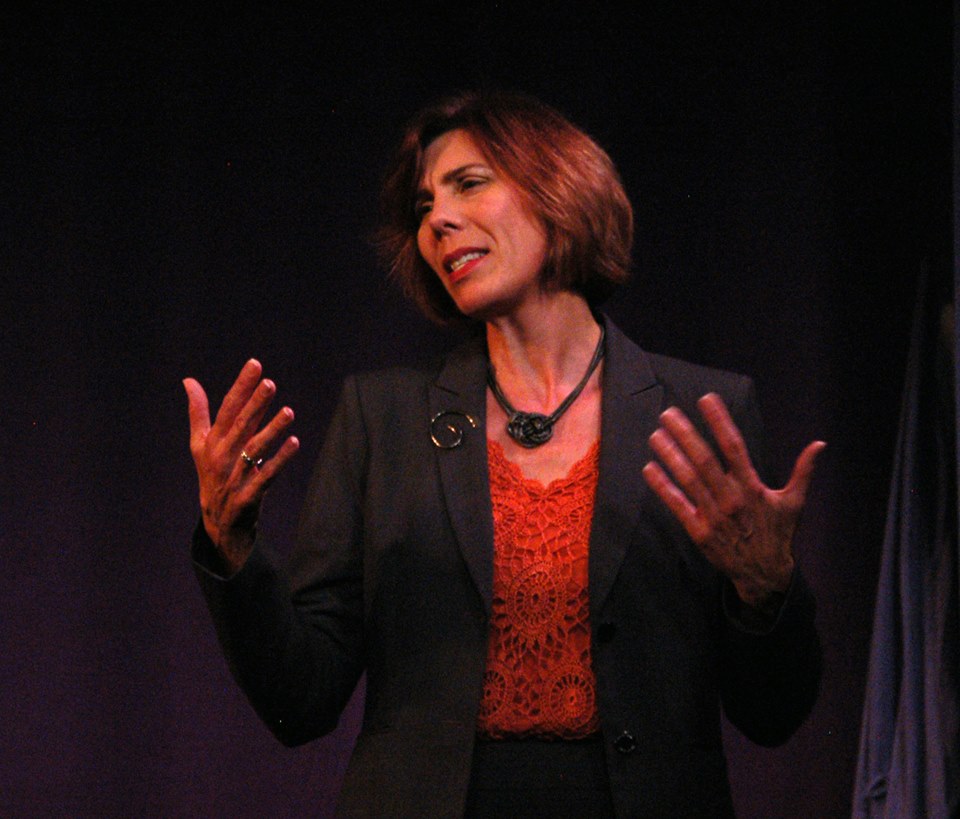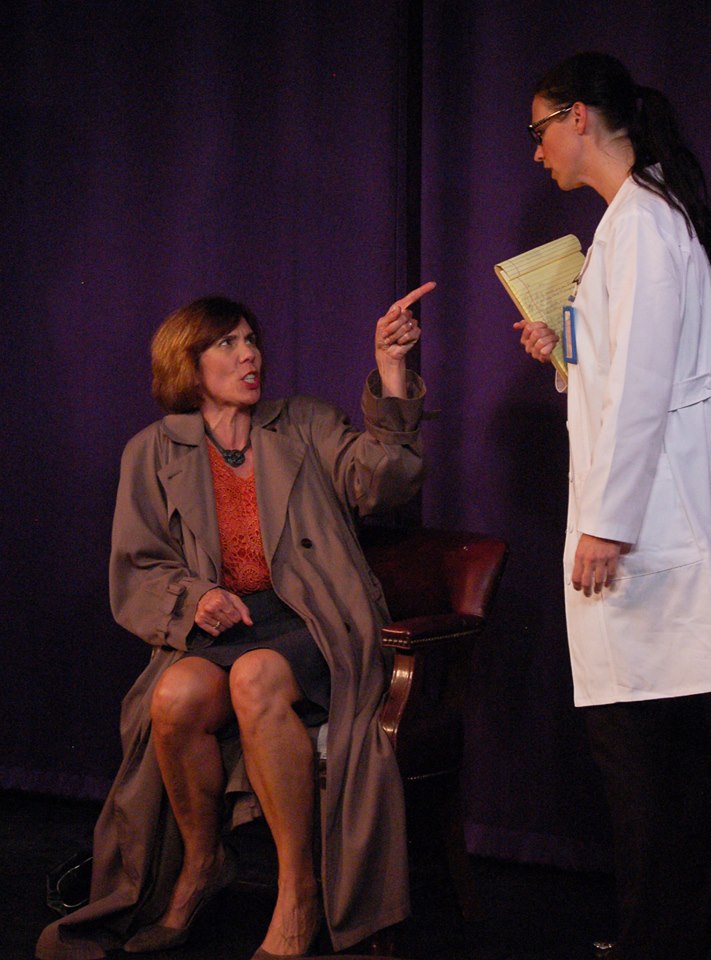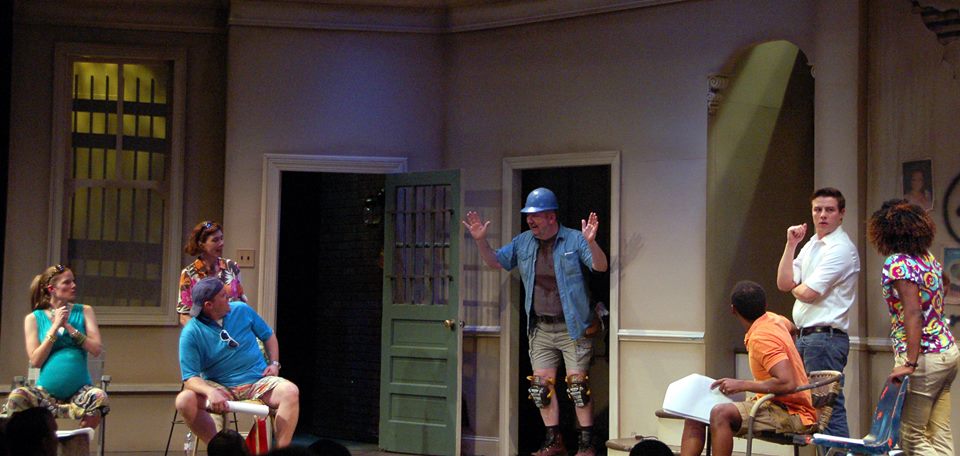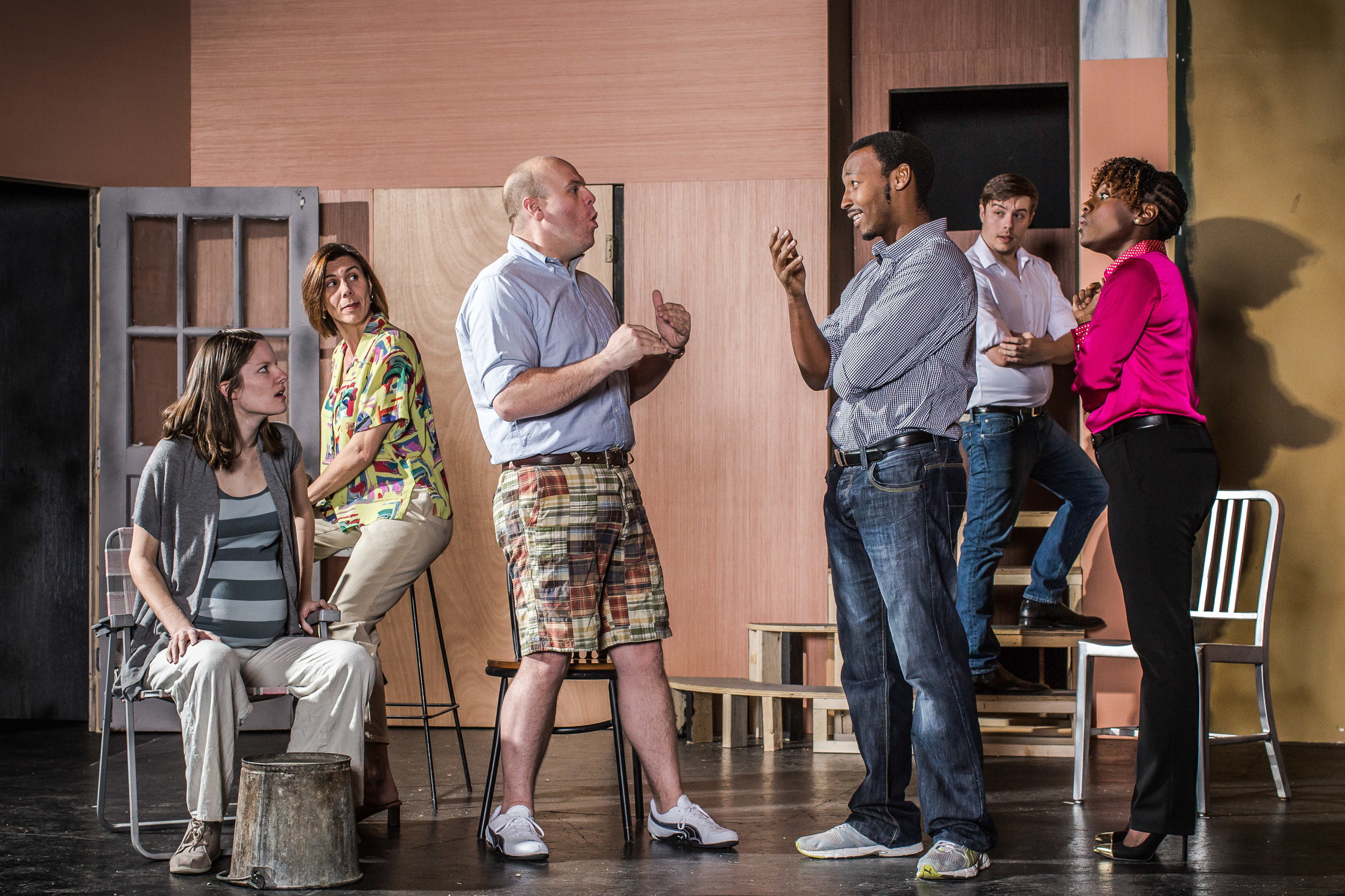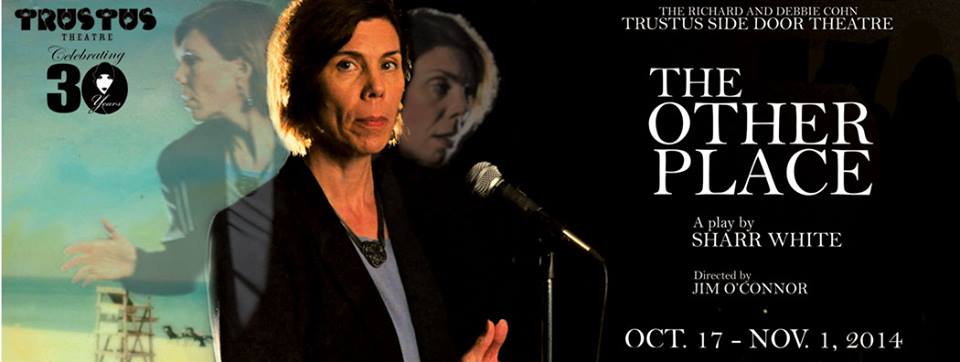 The Trustus Side Door Theatre production of Sharr White’s The Other Place provides an intriguing night of theatre that challenges its audience with questions about personal identity, the effects of illness on relationships, and the conflict between memory and reality. The eighty-minute play begins relatively straightforwardly as Juliana, a brilliant 52-year-old scientist, gives a presentation pitching a new drug to a group of doctors. Juliana’s lecture is practiced and polished, and she radiates self-assuredness to an almost annoying degree. We have no reason not to take her at her word. However, as this darkly humorous mystery play continues, it becomes clear that Juliana might be a less reliable narrator than we first assumed.
The Trustus Side Door Theatre production of Sharr White’s The Other Place provides an intriguing night of theatre that challenges its audience with questions about personal identity, the effects of illness on relationships, and the conflict between memory and reality. The eighty-minute play begins relatively straightforwardly as Juliana, a brilliant 52-year-old scientist, gives a presentation pitching a new drug to a group of doctors. Juliana’s lecture is practiced and polished, and she radiates self-assuredness to an almost annoying degree. We have no reason not to take her at her word. However, as this darkly humorous mystery play continues, it becomes clear that Juliana might be a less reliable narrator than we first assumed.
Directed by Jim O’Connor, the show is well-suited to the intimate venue because the script gives the audience a first-hand view into Juliana’s head. We experience events in the same fragmented way that she does, so it’s appropriate that we are also right there with her physically in the small space. The set is minimalistic, especially during the first half of the play, when the scenes switch abruptly (sometimes mid-sentence) between various locations. The slightly more detailed set of the play’s second half depicts “the other place:” the Cape Cod vacation home that has been in Juliana’s family for generations. The set is supplemented with excellent use of projections that serve as PowerPoint slides for Juliana’s presentation, and the projections also occasionally set the turbulent mood with images of crashing waves. The costumes, designed by Jean Gonzalez Lomasto, are simple but well-chosen (though I was sometimes distracted by the clomping sound of the women’s high heels on the hollow wooden stage, but this is a minor complaint.)
The cast is comprised of four capable actors whose chemistry together increases as the play goes on. As Juliana, Erica Tobolski must carry the show. She navigates the highs and lows of the complex character with dexterity, understanding that Juliana uses her acerbic wit and authoritative demeanor as coping mechanisms that help her to grasp at the vestiges of control over her life. Like the character of Vivian in Margaret Edson’s Wit, Juliana often breaks the fourth wall to share the details of her struggle with an illness that might be cancer. Tobolski successfully establishes a close relationship with audience members as she enlists our help to try to make sense of her “episodes.” I do wish that some of the transitions between the different scenes and audience addresses were clearer; however, I recognize that the blurred transitions might be a directorial choice intended to illustrate the muddled nature of Juliana’s experience.
Bryan Bender plays Ian, Juliana’s husband. (Or is he her “soon-to-be-ex?” This is one of the mysteries the playwright wants us to contemplate.) Both physically and emotionally, Bender provides a solid, patient, and grounded presence compared to Tobolski’s agitated restlessness; their relationship dynamic reminds me of the couple from Next to Normal in more ways than one. Bender and Tobolski do their best work together during the climactic flashback scene that takes place at “the other place.”
G. Scott Wild and Jennifer Moody Sanchez play the other men and women in the show. Wild has the play’s two smallest roles, but he brings them to life with his typical skillful energy. Sanchez plays three different characters: Juliana’s doctor, Juliana’s distant adult daughter, and a stranger. She makes distinctive choices for each one, but I liked her best as the stranger. The scene between Juliana and the stranger is hilariously entertaining because of the ridiculous situation and the way the two actors react to one another. More importantly, though, the scene provides a touching example of an empathetic connection between two people who have never met before. The stranger shows kindness to Juliana even though it doesn’t come easily to her because she is dealing with myriad issues of her own. The two women are united by their suffering in “the other place,” and sometimes the formation of such a connection is enough to help both of them start the healing process.
This production of The Other Place, which runs through November 1, is worth seeing. Don’t expect to sit back in your seat and relax, though; the show requires its audience to watch actively and make judgments about what’s happening. But doesn’t all effective art do that?
~ Rachel Arling
The Other Place runs through Saturday, November 1st in The Richard and Debbie Cohn Trustus Side Door Theatre (although the closing Saturday night is currently sold out.) The doors and box office open thirty minutes prior to curtain, and all Trustus Side Door tickets are $20 for general admission and $15 for students. Reservations can be made by calling the Trustus Box Office at (803) 254-9732, and tickets may be purchased online at www.trustus.org. The Richard and Debbie Cohn Trustus Side Door Theatre is located at 520 Lady Street, behind the Gervais St. Publix. Parking is available on Lady Street and on Pulaski Street. The Trustus Side Door Theatre entrance is through the glass doors on the Huger St. side of the building.

